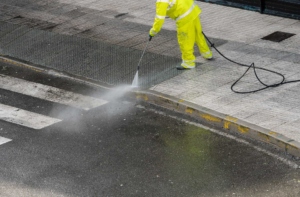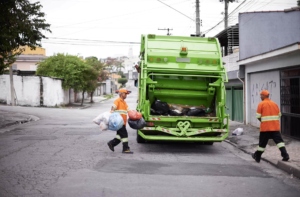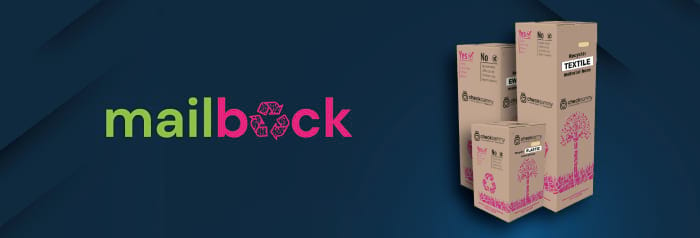Adapting Your Hotel’s Waste Management Practices for the Summer Rush
See Our Services
Create a custom solution to meet your waste and sustainability goals. Contact us today!
Continue reading
Dive deeper into the CheckSammy Blog by reading one of our posts below
Feeling the Pain of Higher Resident Turnover? Apartment Junk Removal Can Help
If you’re a property manager, you’ve probably had a significant increase in tenant turnover over the last couple of years. So it’s no wonder apartment junk removal may be top of mind for you right now. There are several reasons for this shift. For one, the housing market is on fire right now. In 2020 […]
Read More About Feeling the Pain of Higher Resident Turnover? Apartment Junk Removal Can HelpSetting Up a Community E-waste Recycling Program
E-waste is the fastest-growing municipal waste stream according to the EPA, yet e-waste recycling isn’t keeping pace. In fact, only 12.5% of all e-waste is recycled, reports the EPA. Starting a community e-waste recycling program is a terrific way to ensure hazardous e-waste, like lithium-ion batteries, doesn’t end up in your community’s landfill. Creating an […]
Read More About Setting Up a Community E-waste Recycling ProgramWaste Management’s Role in the Circular Economy
Establishing a waste management program for your business or community is one of the best ways you can contribute to the circular economy. Here’s everything you need to know about waste management’s role in the circular economy (and how to get involved). What Is the Circular Economy? Our current economic model is all about taking […]
Read More About Waste Management’s Role in the Circular Economy5 Reasons to Consider a Textile Recycling Program for Your Organization
Americans sent more than 17 million tons of textiles to landfills in 2018, a volume that is only increasing every year, reports the Environmental Protection Agency. When you think about the fact that it can take over 200 years for textiles to decompose, it’s easy to grasp how large textile waste’s contribution is to the […]
Read More About 5 Reasons to Consider a Textile Recycling Program for Your Organization8 Benefits of Environmentally Friendly Power Washing Services
If you’re into maintaining the curb appeal of your business or home, then you’ve probably heard of pressure washing. Pressure cleaning involves using high-pressure water spray to remove grime, mold, dust, paint, mud, and other junk from objects or surfaces. Many people worry that pressure washing isn’t good for the environment, but this couldn’t be […]
Read More About 8 Benefits of Environmentally Friendly Power Washing ServicesWhy Our Customers Love Our Full-Service Junk Removal
If you’re looking for full-service junk removal services, you’ve come to the right place. CheckSammy is a one-stop shop for all your junk removal and sustainability needs. From our affordability, simplicity, and unrivaled turnaround times to our innovative sustainability solutions and patented technology and data, it’s clear why some of North America’s biggest companies choose […]
Read More About Why Our Customers Love Our Full-Service Junk RemovalTips for a Stress-Free Move From An Eco-Friendly Junk Removal Company
What does an eco-friendly junk removal company know about moving? Quite a lot, actually. Moving can be an especially chaotic time. You have to pack everything up, get rid of unwanted items, clean your property, load everything up, and move your things to your new location. That doesn’t even include the unpacking and resettling period. […]
Read More About Tips for a Stress-Free Move From An Eco-Friendly Junk Removal CompanyCollege Junk Removal Tips for Student Move-In Day
As the new school year gears up, colleges across the country are looking for ways to clean up their campuses before the new year begins, and many of them want to do so sustainably. College junk removal isn’t easy, though, especially around move-in week—and when trying to do so sustainably. As students move in and […]
Read More About College Junk Removal Tips for Student Move-In Day8 Items Hospitality Businesses May Not Know They Can Recycle
One hotel guest produces 2.5 pounds of trash every single day. Just a single hotel room produces around one cubic yard of waste each month, which totals 200 gallons of waste per room every month. Most of this waste goes straight to the landfill, even though research shows that up to 60% of it is […]
Read More About 8 Items Hospitality Businesses May Not Know They Can Recycle












